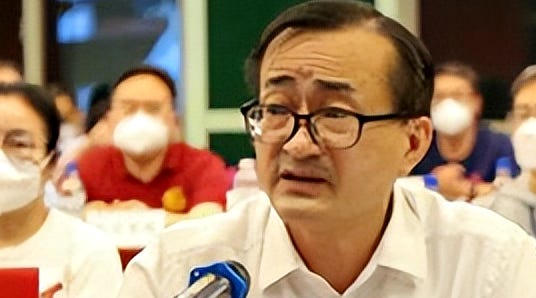Hey Beijing watchers!
Here we wrap up this week’s economy theme.
Economic stability seems more than ever decided by where one sits. For some policymakers in the PRC, talk of its fiscal demise is maliciously exaggerated. For actors downstream fiscal minefields are to be found around every corner.
Minefields are, indeed, threatened by the recasting of politics in ever more statist terms as the new Xi administration interweaves ‘common prosperity’ and ‘Chinese-style modernisation’.
Xi and his supporters might well argue that these are simply outcomes of fraying geopolitics post-Trump, COVID and Ukraine. But large numbers of investors outside China are no longer eager to put good money into the service of these programs.
Following Monday’s post on RMB tools, we look at what local experts are saying about where the RMB and the economy as a whole will go in 2023.
Some good reading below
Philppa
Guan Tao 管涛 | BOCI (Bank of China International) Securities chief global economist
Guan argues a depreciating RMB will not lead to imported inflation. Inflation in producer prices has slowed all year, and consumer prices remain subdued, he notes. Mismatches between supply and demand, market liquidity and commodity prices primarily cause domestic inflation. Looking ahead to 2023, if the US Federal Reserve continues to raise interest rates and drives the economy into a recession, subsequent easing by the Fed will help the domestic economy, and the RMB may benefit in a replay of the post-2008 financial crisis economy. The PBoC should thus focus more on improving the domestic economy and rely on the PRC’s strong economic fundamentals to maintain a stable exchange rate.
Guan joined the State Administration of Foreign Exchange in 1992 and rose to head the balance of payments department. He left in 2015 and joined the China Finance Forty Forum (CF40), of which he is a founding member. In 2020 he joined the Bank of China Securities.
Liu Yuanchun 刘元春 | Shanghai University of Finance and Economics president
Liu argues that now is the time for policies to boost consumer spending rather than investment. However, large-scale, short-term economic stimulus will run the risk of having no effect. It will only exacerbate the problem of high savings rates as COVID restrictions have stymied logistics and the flow of people. Rather than short-term stimulus, the focus should be on medium and long-term policies such as raising incomes, improving the safety net, and supporting affordable housing.
Taking a PhD at Renmin University in 1999, Liu followed usual PRC practice in joining its teaching staff. His work on state commissions, not least under the Ministries of Education and Information and Technology, culminating in an invitation to address the Politburo in April 2022, is testimony to Liu’s ‘rising star’ status.
Wang Yiming 王一鸣 | PBoC Monetary Policy committee member
The economy is currently running below its potential growth rate, which, if left unchecked, can cause long-lasting damage to the economy, notes Wang. Chief among this damage will be less risk-taking from firms that are hesitant to invest and households that will pull back on spending. Moving into 2023, more must be done to prop up the economy as the world heads into a recession, predicts Wang. He calls for institutionalising the large VAT tax credits rolled out this year for SMEs and increasing the fiscal deficit. Monetary policy should also remain loose. Under these policy settings, the economy should reach 5 percent growth in 2023 and maybe even higher, given the low-base effect from this year.
Taking a PhD in 1989, Wang has since worked in government, including the NDRC. He headed the State Council’s Macroeconomic Research Centre and was appointed to the PBoC’s Monetary Policy Committee in 2021. He is also vice chairman of the China Center for International Economic Exchanges.





